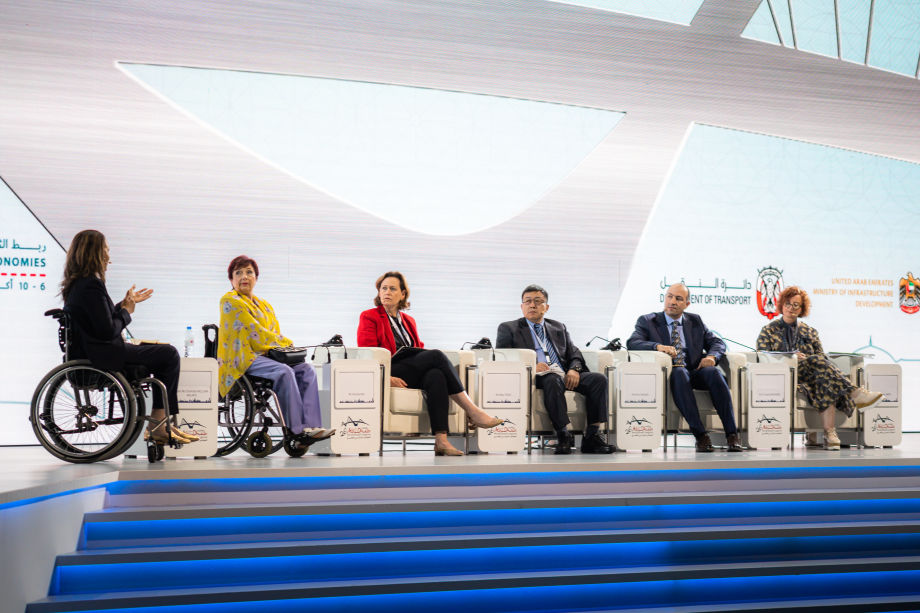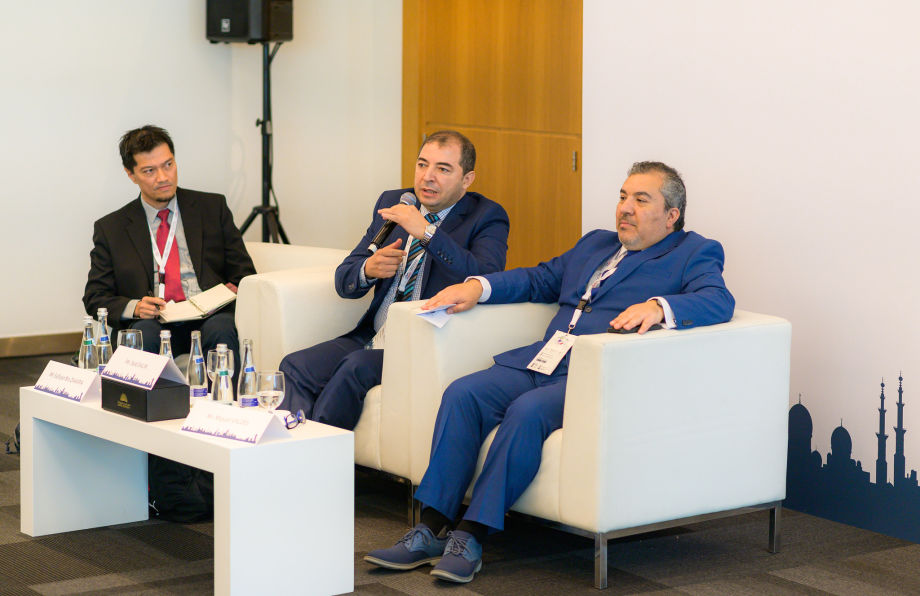Foresight sessions and workshops: approaches with various themes at the XXVI World Road Congress
6-10 October 2019, Abu Dhabi (United Arab Emirates)
From 6 to 10 October 2019, participants were able to attend more than 60 sessions and workshops and thus address many themes in the road sector
The XXVI World Road Congress, held in Abu Dhabi from 6 to 10 October 2019, provided an opportunity for PIARC to build on its partnerships with other international organizations to adopt complementary approaches, and to add value to common member countries through foresight sessions and some of the workshops.
During the Congress, PIARC brought together speakers from the World Bank, the Asian Development Bank, the Development Bank, the African Development Bank, the European Investment Bank, Inter-American Development Bank, OECD, International Labour Organization, the International Transport Forum, IRF, IRU, ERF, UITP, iRAP, ReCAP, CoST, AASHTO, International Association of Transportation Regulators and many other organizations.
This systematic approach, which made it possible to mobilize a variety of actors, and its reflection in the Congress programme, was highly appreciated by the participants and considerably enriched the debates. Topics complementary to the 2016-2019 work were discussed, such as gender issues in the road sector, accessibility for inclusive road infrastructure, or BIM.
Fruitful foresight sessions
During the Congress, 13 foresight sessions were held on various themes: socio-economic impacts of autonomous vehicles, road safety partnerships, road resilience, pavement sustainability, sustainable financing, sustainable urban freight, gender equality in the road sector, implementing innovative technologies, disability-inclusive road transport, connected and autonomous mobility, rolling out BIM for highways, transparency in transport and long distance freight.
Road transport and disability

The foresight session "Road Transport and Disability", which was awarded the best session of the Congress, was the first ever session in the history of the World Road Congress devoted to disability. Daniela Bas, Director of the Division for Inclusive Social Development (DISD) of the United Nations Department of Economic and Social Affairs, said: "Building accessible roads is a matter of justice and common sense, while investing in the future. Inclusion is not only a legal obligation, it is also an economic and social imperative for which we must work together" and added "Nowadays, transport is the vital link to access education, employment, health care and even social and community commitments".
The other speakers of the session were Charlotte McClain-Nhlapo, World Bank Advisor on Disability Issues, Mary Crass, Head of Institutional Relations and Summit for the International Transport Forum, Pan Haixiao, Professor of Urban Planning at Tongji University in Shanghai, Saeed Mohamed, Senior Global Transport Specialist at the Islamic Development Bank and Claire Smith, Head of Transport Accessibility Policy in Scotland.
Gender equality in the road sector
Among the key sessions of the Congress, participants were also able to attend the foresight session entitled "Transport is not neutral: increasing women's mobility and promoting access to employment". During the session, the experts addressed a series of topics that highlighted the importance of gender equality and job creation for both men and women. Guangzhe Chen, International Director and Regional Director in charge of global transport for the South Asian Infrastructure Department of the World Bank, stressed the importance of this aspect: "Achieving the maximum social and economic gains requires the expertise and knowledge of both men and women. This is an issue that we take seriously, and we want to focus on reducing the gender gap in the future. The World Bank Group has recognized that this is one of the key strategies to make a difference in the sector. "
Autonomous mobility and innovative solutions
The impact of the latest technological innovations on the road and transport industry was at the heart of the discussions in Abu Dhabi. The third day of the Congress featured two foresight sessions on the subject: "Implementation of innovative technologies: role of the private and public sectors" and "Connected and autonomous mobility: Are our road networks ready? ». During the first session, Susanna Zammataro, Executive Director of the International Road Federation, addressed the issue of the use of automated vehicles on the roads. She suggested that the authorities consider building roads with sufficient space to meet traffic demand and that the private and public sectors work together to plan infrastructure that takes advantage of the benefits of automated vehicles. Annelie Nylander, Chief International Affairs Strategist of the Swedish Transport Administration, and Miguel Caso Flórez, Technical Director of PIARC, presented the results of the Special Project "Electric Road Systems (ERS): A Solution for the Future? ». The comprehensive report found that buses and trucks are more likely to be the first to adopt ERS, while private passenger car owners are more likely to recharge at home to avoid public costs. He also stressed the importance of government support to disseminate the use of ERS, which in turn will help to achieve climate objectives.
During the second session, the question was whether our road networks are ready for connected and autonomous mobility. Experts (PTV Group, TransAID, CoExist, MAP Traffic Management) have shown that connected autonomous vehicles will increase the capacity of roads because of their ability to drive closer to each other. Governments and transport authorities should consider separate lanes for autonomous vehicles to improve efficiency and safety. Then, Martin Lamb, Director of Maple Consulting Ltd and responsible for overseeing PIARC's study on sustainable energy road construction, said that "producing solar and wind energy is the most appropriate solution for the construction of "Positive Energy Roads" and will contribute to the decarbonisation of road transport".
Interactive workshops

The participants of this XXVI World Road Congress were also able to participate in 13 workshops covering new topics not discussed in the main sessions, but which need to be studied in order to advance road technologies. Round tables were held on various themes such as climate change, the Rural Accessibility Index (RIA), road asset management, BIM and many others. Presentations were also made on the use of HDM-4 and its improvement, and on PIARC's online road safety manual.
Find out more:
- Foresight sessions (exhaustive list)
- Relive the opening and closing ceremonies, the ministers' session and the opening speeches:
- Opening ceremony
- Ministers sessions
- Keynote speeches october 7th
- Keynote speeches october 8th
- Keynote speeches october 9th
- Closing ceremony